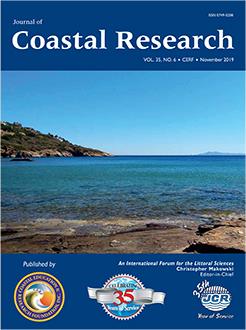Pringle, J. and Stretch, D.D., 2019. A new approach for the stochastic simulation of regional wave climates conditioned on synoptic scale meteorology. Journal of Coastal Research, 35(6), 1331–1342. Coconut Creek (Florida), ISSN 0749-0208.
Statistical modelling of wave climates is an important tool in coastal and ocean engineering design and vulnerability assessments. Modern techniques of multivariate modelling that exploit copulas are now being developed and used for risk assessment applications in diverse fields ranging from finance to hydrology and coastal engineering. Many such statistical models do not directly exploit the physical links between events of interest, such as floods or extreme storm waves, and their fundamental drivers. On the other hand, process-based models that attempt to include those links are subject to modelling errors because of limited understanding of the processes or limitations, or both, in the available computational resources to adequately resolve those processes. This study introduces a new mixed approach to the stochastic simulation of wave climates that is conditioned on synoptic-scale meteorological circulation patterns (CPs) as the key drivers of waves. Copulas are used for the multivariate dependence structure in the model, and the CP occurrences are treated as a Markov chain. Simulated wave time series are shown to reproduce observed wave statistics from a case study site, including extremum statistics. The new techniques presented here should improve statistical modelling while retaining their simplicity and parsimony relative to full process-based models.





